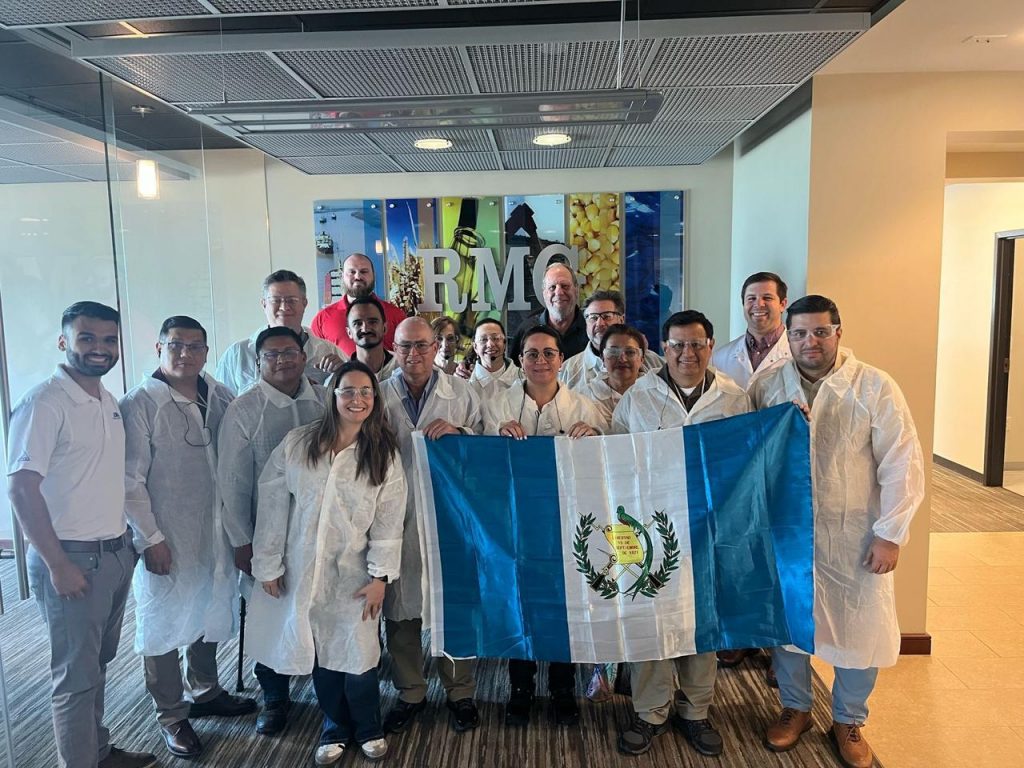Earlier this month, the U.S. Grains Council (USGC) hosted a delegation of 10 Guatemalan government representatives, ranging from port and sanitary authorities to regulatory agencies, who play a crucial role in overseeing grain imports, establishing regulations and ensuring compliance with quality and safety standards.
The program provided participants with a comprehensive understanding of the U.S. grain export system, including quality control procedures, inspection protocols and the roles of the U.S. Department of Agriculture’s Federal Grain Inspection Service (USDA’s FGIS) and other independent surveyors.
“As the most populous country in Central America, Guatemala relies heavily on imports for feed and food, purchasing 1.8 million metric tons (70,862,400 bushels) of corn in marketing year 2023/2024,” said Diana Correa, USGC marketing specialist.
“However, increasing import volumes have put a strain on port facilities, leading to long wait times and higher costs. This outreach to government officials will help their understanding of transport logistics and offer them solutions to the issue.”
The team arrived in Manhattan, KS for introductory seminars at Kansas State University’s International Grains Program (KSU’s IGP) for a background on the U.S. agricultural supply chain and ocean freight logistics.
To apply the knowledge gained at IGP, the group visited a local corn farm, grain terminal and rail facility to see how U.S. corn travels from fields to customers around the world. The delegation then visited a USDA FGIS lab and learned about storage licensing requirements that ensure grain quality and safety throughout the transport process.
The training wrapped in New Orleans as the group spent a day with representatives from Russell Marine Group, a Council member specializing in shipping logistics, inspections and grain analysis, and visited a FGIS facility overseeing exports from the region.
“By fostering stronger collaboration and equipping key regulatory entities with accurate information, the Council is supporting more efficient trade practices and reducing barriers to defend U.S. market share in Guatemala. At the same time, it positions U.S. producers as the preferred choice to meet future demand,” Correa said.
Learn more about the Council’s work in Guatemala here.
About The U.S. Grains Council
The U.S. Grains Council develops export markets for U.S. barley, corn, sorghum and related products including distiller’s dried grains with solubles (DDGS) and ethanol. With full-time presence in 28 locations, the Council operates programs in more than 50 countries and the European Union. The Council believes exports are vital to global economic development and to U.S. agriculture’s profitability. Detailed information about the Council and its programs is online at www.grains.org.

